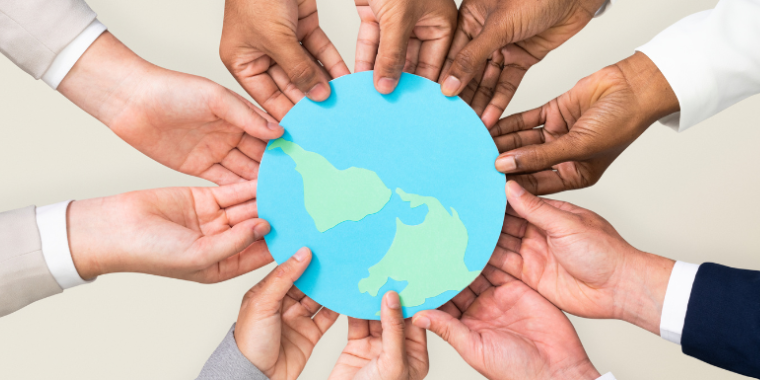
On the 10th anniversary of the Paris agreement, Manutan Group’s climate trajectory validated by the SBTi
The Manutan Group, a leading European B2B e-commerce player specialising in the distribution of equipment and supplies to businesses and local authorities, has had its 2030 climate trajectory validated by the Science Based Targets initiative (SBTi).
Launched in 2015 through a partnership between the World Resources Institute (WRI), the Carbon Disclosure Project (CDP), the World Wide Fund for Nature (WWF) and the United Nations Global Compact (UNGC), this initiative aims to help companies set climate targets aligned with climate science and the goals of the Paris Agreement (COP 21). Manutan Group now joins the 8,955 companies whose objectives have been approved by the SBTi.
The decision, dated 20 June 2025, confirms the Group’s alignment with the Paris Agreement objectives: it validates a trajectory designed to limit the rise in global average temperature to 1.5°C above pre-industrial levels, and to contribute to achieving carbon neutrality by 2050.
Clear Commitments, Scientifically Tested
The validation covers targets set for 2030, using 2023 as the baseline year:
-
Reduce absolute emissions from Scopes 1 and 2 by 60%;
-
Increase the share of renewable electricity from 62% to 100%;
-
Ensure that 70% of suppliers (weighted by their emissions) – covering purchased goods and services, upstream and downstream transport, and distribution – have SBTi-approved targets by 2030;
-
Reduce Scope 3 emissions by 42% for product use and end-of-life categories.
Turning Ambition into Measurable Impact
“SBTi validation marks a decisive milestone in our decarbonisation strategy, strengthening the credibility of our trajectory and accelerating our commitment. It represents both a direction and a pledge, as we move from reporting to impact. Our challenge is a collective one: to engage our customers and suppliers in reducing their footprint, from product selection to logistics, from eco-friendly solutions to reuse. We are advancing with determination to contribute to the global goal of carbon neutrality by 2050,” said Nisrene Haddad, CSR Director of the Manutan Group.
Ten Years after COP21: Where Does Manutan Stand Today?
Emissions and Energy – In 2024, the Group recorded 2,683 tonnes of CO₂ across Scopes 1 and 2 (2,184 tonnes CO₂ for Scope 1 and 499 tonnes CO₂ for Scope 2). Compared to 2022, this represents a 21.5% reduction, showing a clear downward trend. On the energy side, 62% of purchased electricity is already renewable, making the 100% target by 2030 increasingly realistic.
Transport – Between 2021 and 2024, transport-related emissions in France decreased by 12.6%, outperforming the initial FRET21 target of -7%, to which the Group is committed. This progress is driven by dialogue with transport partners and the gradual integration of alternative energy fleets (biogas, electric, biofuel).
Packaging and Warehouses – The zero-plastic target in warehouses by 2030 is already underway: in 2023, 80% of packaging components were made from recycled paper or cardboard, kraft tape is now standard, and more than 10,000 pallets are fully refurbished or partially reused each year. Beyond symbolism, these choices reduce material use and optimise transport (less empty space, fewer trucks).
Value Chain and Product Offer – To address Scope 3 emissions (indirect corporate CO₂ emissions), Manutan Group leverages two complementary levers: data and product offering.
On one side, the Product Environmental Impact Score assesses each product based on Life Cycle Analysis (ISO 14040–44 standards) and the EU’s Product Environmental Footprint (PEF) method. It consolidates 16 environmental indicators into an easy-to-read score ranging from A to E. The goal is clear: to rate 100% of the catalogue by 2026. To date, 35,000 products have already been assessed.
On the other side, the responsible offer (eco-design certificates, eco-labels, second-hand items) now includes nearly 100,000 references, with a conversion rate three times higher than average – a clear sign of rising customer demand driving sector-wide transformation.
A Decade of Implementation Ahead
The SBTi validation sets the pace and scale of efforts to be achieved by 2030. Early results lay solid foundations (energy, transport, packaging), while the industrialisation of data (Environmental Impact Score) enables procurement decisions based on real impact. The core challenge remains Scope 3, which Manutan addresses by mobilising suppliers (70% SBTi target) and guiding customer purchasing towards responsible alternatives.
The objective is clear: to turn the 2030 ambition into tangible, sustainable and shared results, while staying aligned with the carbon neutrality horizon of 2050.
Armed with SBTi certification, Manutan Group now enters the next phase with focus and precision: co-developing action plans with suppliers, guiding customer behaviour towards more sustainable solutions, and raising the standards of data reliability, traceability and transparency.
